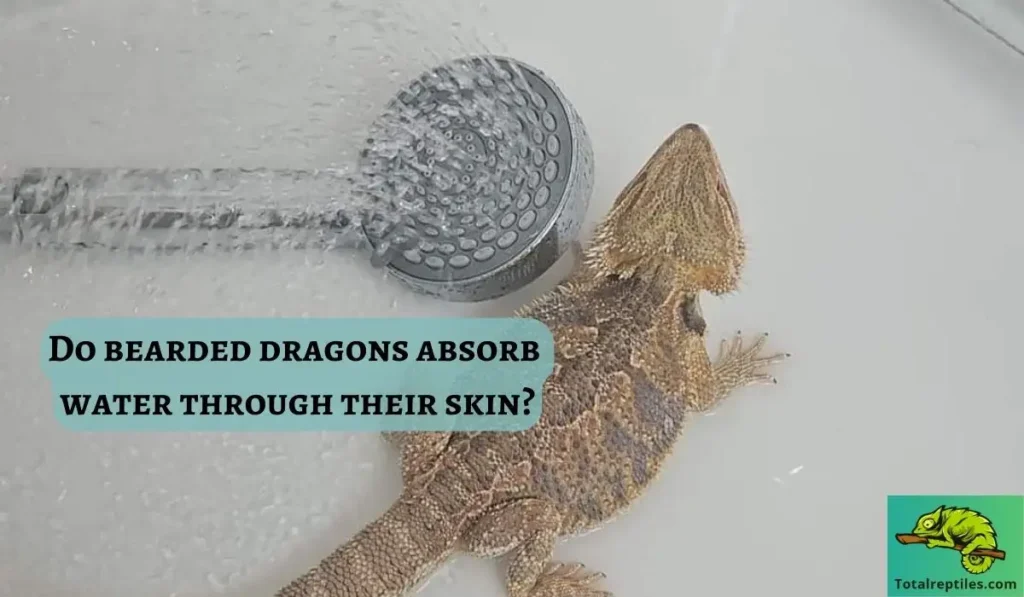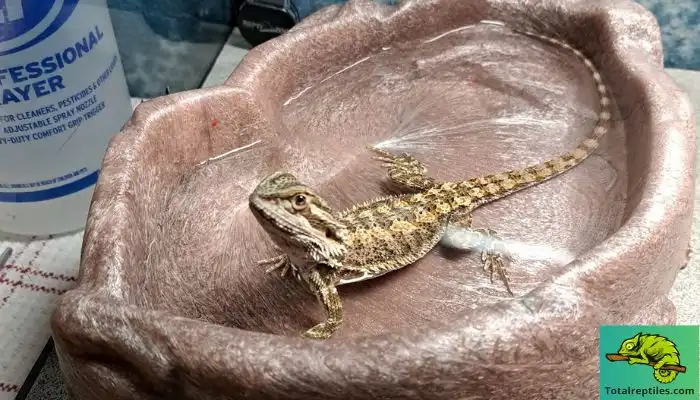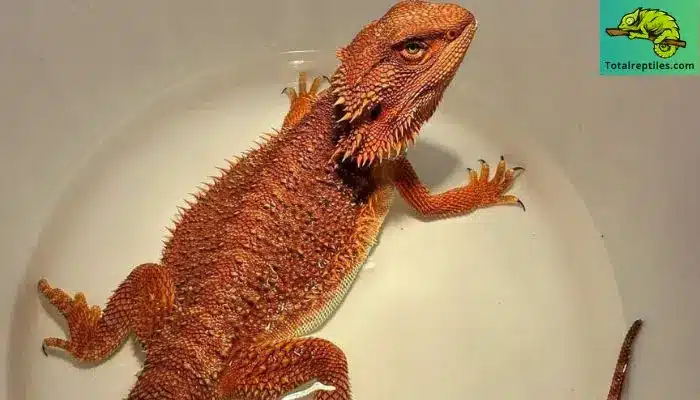People who keep bearded dragons as pets generally place a water bowl inside the enclosure. But what if you don’t keep a bowl and make them take regular baths instead? Do bearded dragons absorb water through their skin?
There is some disagreement when it comes to whether bearded dragons can absorb water through their skin or not. Some sources claim that their skin is permeable, while others claim they can absorb moisture through their skin.
So, what should you conclude after learning the information above? Well, to get to a conclusion, you need to know more about the topic. And for that, you should keep on reading.

How Do Bearded Dragons Drink Water? Can They Hydrate in Multiple Ways?
In case you were wondering whether bearded dragons drink water, the short answer is yes. Now, when it comes to how they hydrate themselves, there are many different ways. They are discussed below:

Through Drinking Water
As you can guess, the first method that bearded dragons will stick to when it comes to hydrating themselves is drinking water. Usually, the keepers will place a shallow bowl of water inside the tank, which the bearded dragons will drink from.
Via Misting
It is a common practice to mist the tank of bearded dragons. It does not only control the moisture and heat of the bearded dragon enclosure but also allows them to hydrate. Wondering how?
The droplets on the reptile’s body eventually run through, which the bearded dragon will drink from.
Through Moisture-rich Veggies
The diet of bearded dragons is pretty diverse. But as you might know, it contains a good chunk of leafy, moisture-rich greens. Often, if the reptiles get their required water content from these veggies, they do not drink water from the bowl.
Can Bearded Dragons Absorb Water Through Their Skin?
As mentioned earlier, there is contradicting information available regarding bearded dragons absorbing water through their skin. Some claim these reptiles can fulfill body hydration requirements through their skin, while others say against it.
The sources that claim against it explain that it is a myth and is not true. Most of these sources focus on whether the reptiles can absorb water through their cloaca, the vent.
According to them, the vent of the bearded dragons is only for defecating and urinating, not for absorbing anything.
On the contrary, the other sources that say the claim is valid focus on osmosis, which reptiles can use. Osmotic and ionic regulation in bearded dragons and other reptiles has been studied before.
However, none of the studies have come with conclusive evidence that bearded dragons can absorb water through their skin. So, it is up to you whether you treat it like a myth or a fact.
Do Bearded Dragons Need to Absorb Water Through Their Skin?
Even if bearded dragons can absorb water through their skin, it is not their primary hydration method. The most efficient way for them to maintain hydration would be to drink water. For that reason, it’s essential to keep water inside their tank.

On the other hand, if you can not make your pet bearded dragons drink water from the bowl, it is recommended to encourage them. You can do that by adding some fresh fruit juice.
Likewise, you can increase the leafy greens in the diet of the bearded dragons. Moisture-rich vegetables will go a long way in keeping these reptiles hydrated and saving them from dehydration.
Still, that does not mean you should stop giving them baths. To be exact, you should give the bearded dragons a bath at least 1 to 3 times weekly. For adult bearded dragons, it is recommended to stick with 1 to 2 times each week.
On that note, for shedding bearded dragons, it is recommended that you increase the bathing frequency. They should receive 3 to 5 baths each week. This increased bath frequency will help them get rid of the old skin.
Final Words
So, do bearded dragons absorb water through their skin? The answer is not really explored that well. Many believe these reptiles can absorb water through their skin, while there are many arguments against it.
No matter what, you should not expect them to maintain hydration levels by absorbing water only through their skin. Instead, ensure they always have access to clean and fresh water.

